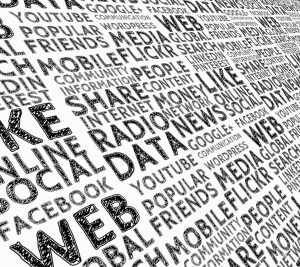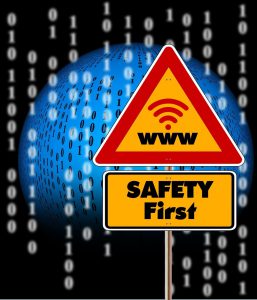Ever since computers became of a similar size they are today, in the 70s and 80s, although nowhere nearly as powerful, we have been able to store data and information. That time marked the end of the industrial age, or rather, industrial society, according to sociologists Manuel Castells, Ulrich Beck and Anthony Giddens. They argue that the world has started shifting to an information society ever since the 70s.
That leaves just one question, though, what exactly is information society? There is a little problem with that.
Information Society – A Definition Without Form

Defining information society has been an issue. There have been plenty of debates ever since the world started using computers and mobile phones globally. The problem arises from no universally accepted definition and the fact that many cannot reach an agreement over what to include and exclude from the definition.
Here are some examples of information society definitions.
Frank Webster points out that information society could be characterized by five different elements, or rather informational types, cultural, spatial, economic, occupational and technological. Webster also notes that humans changed due to information character, that the way we conduct ourselves is different. Our behavior is centered around technology and information.

Michael Buckland reminds us of the personal and individual character of information, rather, what information means to each and every one of us, which we often judge by our own experiences. In his book, Information and Society, he groups the various possible meanings of information into 3 sub-types, information as a process, information as a thing and information as knowledge.
Since metaphors and opinions change with the usage of technology and information, some countries are thought to be information societies more than others, like South Korea and Japan.
Problems with an Information-Driven Society
If a society is driven completely by information control and distribution, the amount of information and quality of said information, you are bound to run into some problems. There are problems of security, identity thefts, intellectual property abuse and piracy.

Regarding security, many sites are encrypted today, so that the data passing from you to the server cannot be read or intercepted by almost anyone. Theoretically, it is possible to decrypt an SHA-256 encryption algorithm, yet in practice, that would require a lot of computing power.
Intellectual property can be abused by others, especially if an author has not taken measures to secure their content. Often, the smaller authors, musicians, are the ones being taken advantage of. Their voice is not heard far unless they act out immediately.
Piracy is still active today, even though there have been creative implementations of protection, like Denuvo or a new system used on Windows called UWP. Games are becoming harder to crack, or rather, more of a hassle, as many a cracker would say it.
Another problem is that the quantity of information far exceeds its quality. There is so much content which serves no purpose other than to gain money and is otherwise not relevant to the progress of technology or society.
What Can we Expect Moving Forward?
Should we expect a cyberpunk dystopian future? Probably not. We should expect technology and information to keep developing and slowly reshaping the world. We can also expect the clutter of information to grow larger, as storage becomes cheaper. Even though we do not have a concrete definition of an information society, the world is going to be shaped by information in the years to come.

